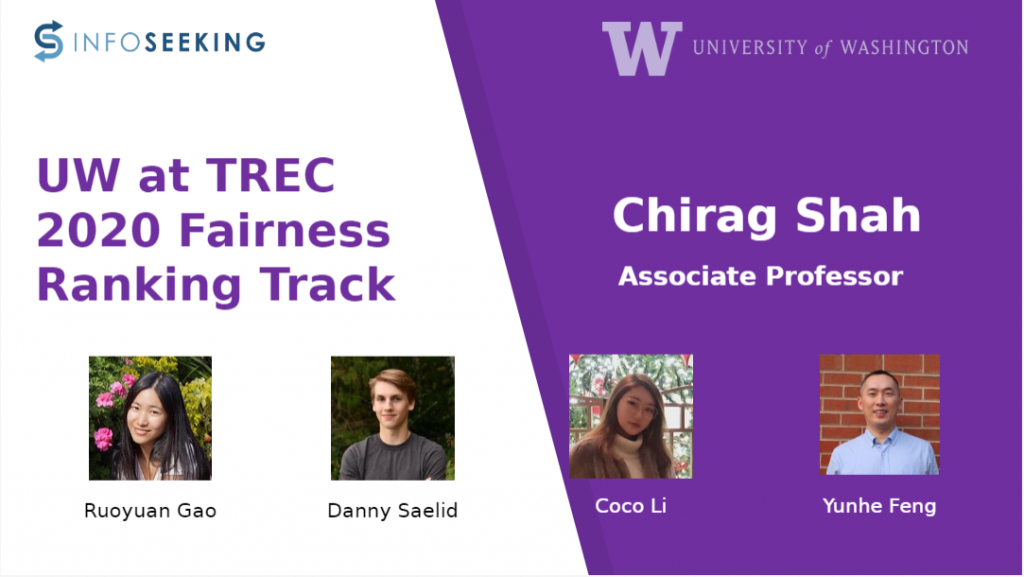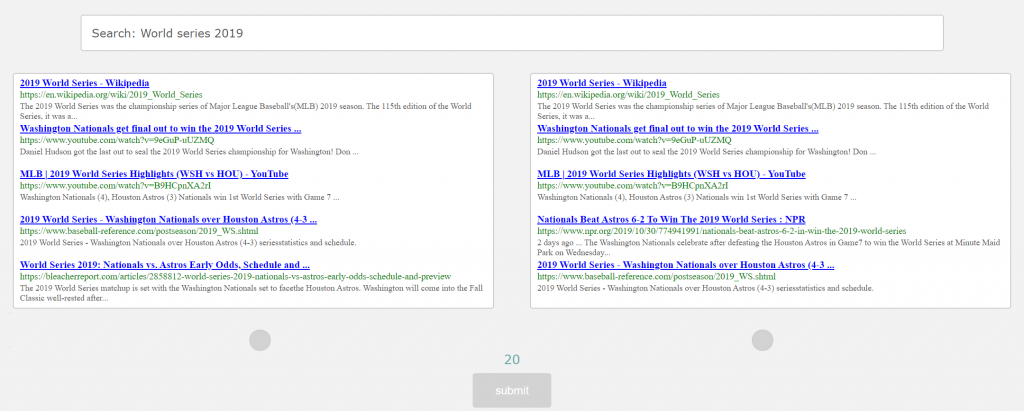Challenging the status quo in search engine ranking algorithms
How can we bring more fairness to search result ranking? This was the question tackled by our FATE (Fairness Accountability Transparency Ethics) group in the 2020 Text REtrieval Conference’s (TREC) Fairness Ranking Track. In the context of searching for academic papers, the assigned goal of the track was the goal was to develop an algorithm that provides fair exposure to different groups of authors while ensuring that the papers are relevant to the search queries.

The Approach
To achieve that goal, the group decided to use “gender” and “country” as key attributes because they were general enough to be applied to all author groups. From there, the group created an fairness-aware algorithm that was used to run two specific tasks:
- An information retrieval task where the goal was to return a ranked list of papers to serve as the candidate papers for re-ranking
- Re-ranking task where the goal was to rank the candidate papers based on the relevance to a given query, while accounting for fair author group exposure
To evaluate the relevance of the academic papers, the group relied on BM25, which is an algorithm frequently used by search engines.
The Findings
By randomly shuffling the academic papers, the result was high levels of fairness if only the gender of the authors was considered. In contrast, if only the country of the authors was considered, fairness was relatively lower. With the proposed algorithm, data can be re-ranked based on an arbitrary number of group definitions. However, to fully provide fair and relevant results, more attributes need to be explored.
Why is fairness in search rankings important?
We use search engines everyday to find out information and answers for almost everything in our lives. And the ranking of the search results determine what kind of content we are likely to consume. This poses a risk because ranking algorithms often leave out the underrepresented groups, whether it’s a small business, or a research lab that is not established yet. At the same time, the results tend to only show information we like to see or agree with, which could lack diversity and contribute to bias.
Interested in learning more? Check out the full research paper here: https://arxiv.org/pdf/2011.02066.pdf




